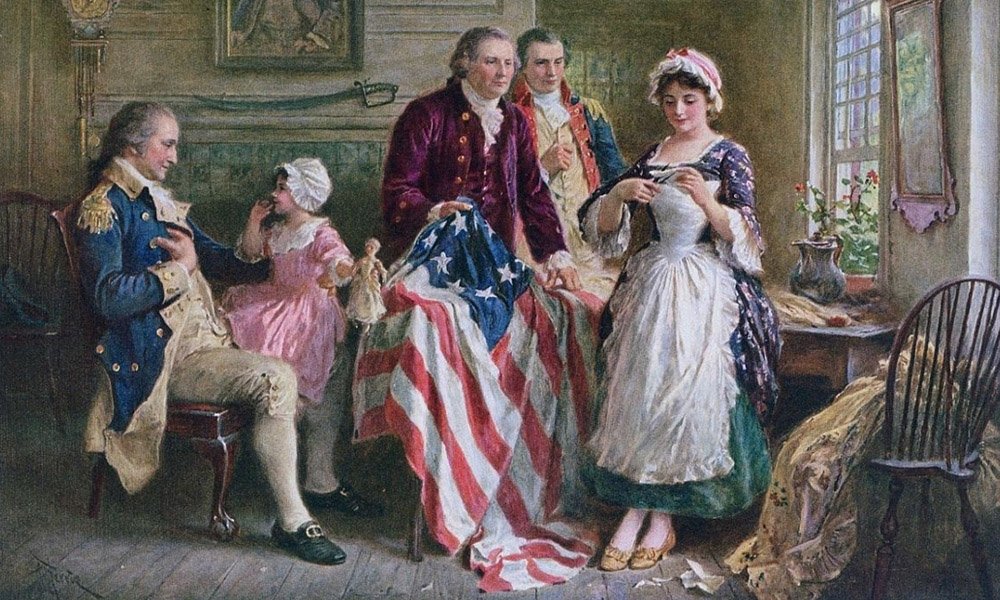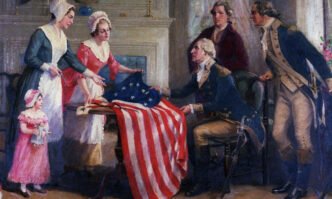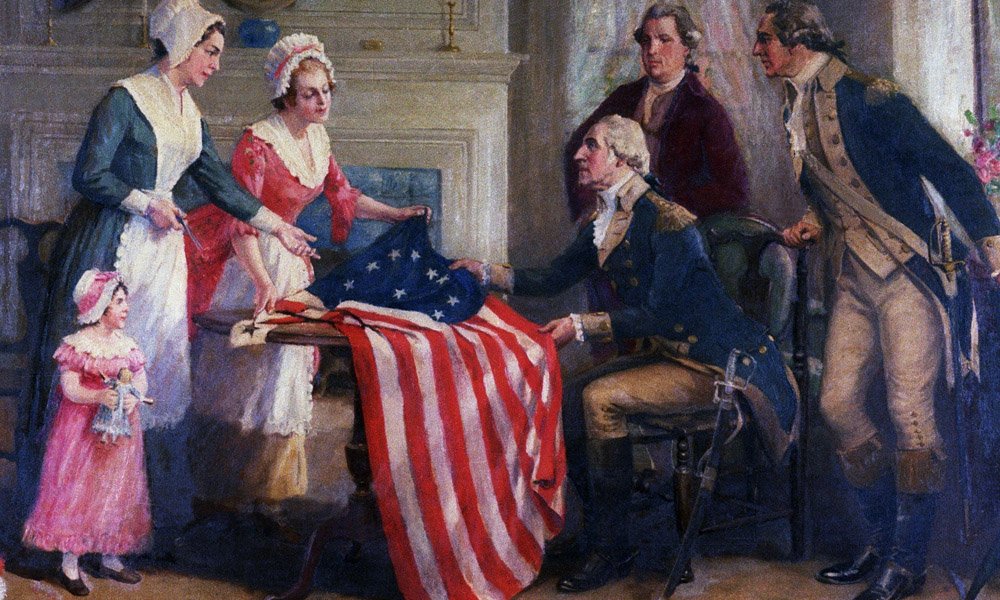Clarissa Sidney Claypoole Wilson (1785-1864) was a significant woman whose life is entwined with the fabric of early American history. Clarissa was born in Philadelphia, Pennsylvania, to John Claypoole and Elizabeth Griscom, well known as Betsy Ross. Her family was both noble and influential. Clarissa’s mother’s renown as the inventor of the American flag made an unforgettable influence on her life, and she, too, helped shape American culture via her own familial and personal journey.
Early Life and Heritage.
Clarissa Sidney Claypoole Wilson was born about April 2, 1785. She was the daughter of Elizabeth Griscom (Betsy Ross), a crucial person in the American Revolution known for making the first American flag. Betsy Ross’ involvement to the nation’s early symbols, notably her work in the design of the flag, left a tremendous legacy for Clarissa. Clarissa’s father, John Claypoole, married Betsy Ross following the death of her first husband, Joseph Ashburn, adding to the intricacy and depth of her family history.
Growing raised in such a historically noteworthy household, Clarissa was clearly inspired by the beliefs and events surrounding the American Revolution, even if her life path later diverged from that of her renowned mother.

Marriage & Family Life
Clarissa Sidney Claypoole and Jacob Wilson married on June 5, 1805, in Newtown, Bucks County, Pennsylvania. The couple went on to have at least six children, one boy and five daughters, confirming her status as a matriarch in her own right. Clarissa’s marriage to Jacob Wilson marked the start of a new chapter in her life, and she raised her children in a household that was deeply committed to the American principles of liberty and independence.
Her offspring, including her daughters, would go on to start their own families, spreading the Wilson family’s impact over generations. Clarissa’s strong family ties and persistence beliefs reflected the nation’s endurance in its early years.
Later Years and Legacy
Clarissa lived in a variety of locales throughout her final years, but she died on July 19, 1864, in Fort Madison, Lee County, Iowa. She was 79 years old when she died. Clarissa was recognised in her later years as the daughter of one of the most legendary persons in American history, but she was also recognised for her own achievements and impact within her family and community.
Clarissa’s legacy was also linked to her background, since she was a direct descendent of Magna Carta Baron Roger le Bigod, which distinguished her lineage even more. Her life and familial ties have long been honoured as part of the larger American historical narrative, and they are frequently highlighted in genealogy and historical research.
Clarissa Sidney Claypoole Wilson and Her Relationship to Betsy Ross
Clarissa’s bond with her mother, Betsy Ross, was a major component of her personality throughout her life. Betsy Ross, who famously stitched the first American flag, is a lady with a strong tie to American history, and her daughter, Clarissa, was no exception.
Clarissa was not only the daughter of an American legend, but she also played an important part in upholding her mother’s legacy. The tale of Betsy Ross’ flag has been entwined with the history of people in her family, especially Clarissa, whose own life contributed to the narrative of the Republic’s early years.
Clarissa’s name is frequently mentioned in genealogy records, such as those accessible on FamilySearch and Ancestry.com, as a link in the chain of American history, with her mother’s influence maintaining consistent throughout her life. These records illustrate Clarissa’s familial relationships, the significance of her birth, and the long-term influence of her mother’s accomplishments.
Clarissa Sidney Claypoole Wilson’s Contributions to American History
While Clarissa Sidney Claypoole Wilson may not be as well-known as her mother, Betsy Ross, her life remains an essential episode in American history. Clarissa had an important part in early American culture as the daughter of a notable Revolutionary War officer and mother of several children.
Her relationship with Betsy Ross was more than simply family; it was a link to a greater story about the development of the American country. Clarissa’s life reminds us that the history of the United States is moulded not just by renowned personalities, but also by the ordinary lives of those who know them.
Clarissa’s death, like her life, became part of the greater American tale, demonstrating the enduring influence of the early residents who helped form the country.
Conclusion
Clarissa Sidney Claypoole Wilson, born in 1785, was more than just Betsy Ross’ daughter. She was a mother, a wife, and a woman whose life, while not as well-known, was inextricably linked to the early years of American history. Her narrative offers a unique perspective on women’s roles in early America, as well as the long-term impact of one of the country’s most recognisable symbols, the American flag. Clarissa Sidney Claypoole Wilson continues to be an important part of the American history via her familial connections and personal life.








